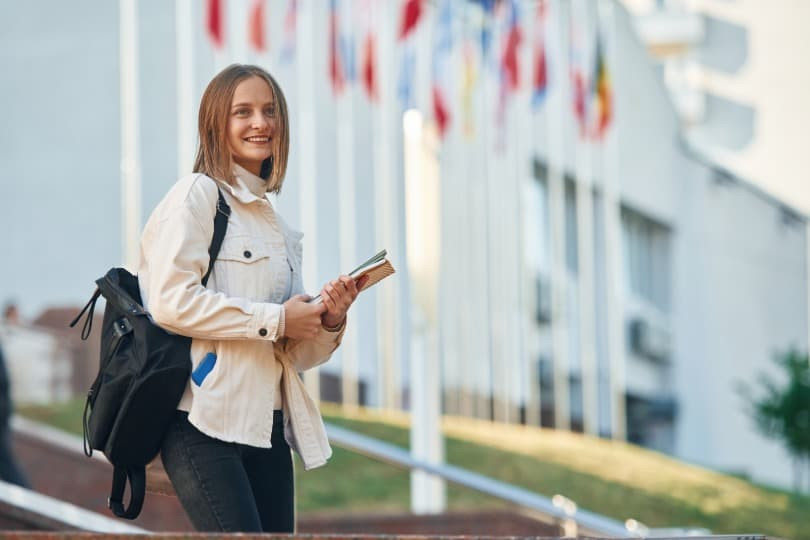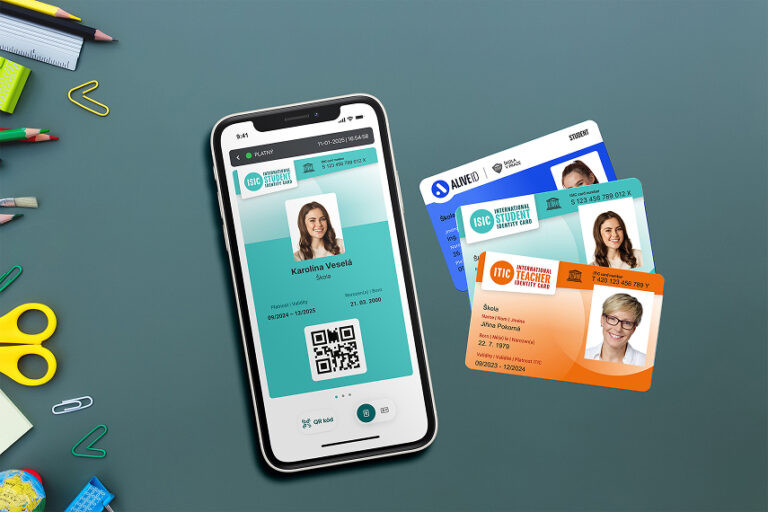Four out of ten Czech students say they are not happy in the long term. That is significantly more than among their German, Spanish, or Romanian peers. Students from African Morocco are also noticeably happier. This was shown by the results of an international student survey conducted in six European countries and Morocco by GTS Alive Group, which issues ISIC student cards in the Czech Republic and other countries. Czech students, on the other hand, along with Slovak students, can boast of their diligence – 85 percent of them work at least once a year in a part-time job. In other countries, this is significantly less — for example, in Spain, half, and in Romania, a third of students.
“In the survey, we also asked Czech students what kind of employment they would prefer in the future. Compared to other countries, more of them see themselves working for smaller companies or in public administration. On the other hand, they are less attracted to corporations than Austrians, Spaniards, or Romanians. Three out of ten Czech students want to be entrepreneurs, whether by running their own business or working freelance,” comments Radek Schich, director of GTS Alive in the Czech Republic, on the survey’s further results.
Czech students are evidently better off financially than is generally assumed. Over half of them rate their financial situation as rather good or even very good. Only one in seven students say they are doing very poorly financially. So money is likely not the cause of the aforementioned gloom. More likely, it is the political situation. Sixty percent of Czech students rate it as bad. Slovak students are in an even worse position, with 90 percent expressing the same negative opinion — although the timing of the survey around Slovak elections may have played a role.
Otherwise, almost eight out of ten students say life in the Czech Republic is rather good or very good. Here again, there is an interesting contrast with Slovakia, where only four out of ten students feel they live well — the worst result among all participating countries. The most satisfied in this regard are Austrians, closely followed by Germans.
German students also excel in their interest in domestic politics — 60 percent actively follow it. In the Czech Republic, it's about every second student. Spaniards are most interested in global issues, followed by Austrians and Germans. Czech students are less interested in the outside world; only Slovak students are less engaged in this area.
Perhaps this is also why Czech students are the least likely of all surveyed to want to head abroad. When asked whether they would like to move abroad to live and work for more than a year after their studies, only half of Czech students answered yes, compared to between 60 percent (Austrians) and 90 percent (Spaniards) in most other countries.
The survey yielded better results for Czech students when it comes to access to education. When asked whether children from financially better-off families can get better education in their country, 75 percent of Czech students said yes — but the situation is even worse in Spain, Germany, and Romania.
The survey among Czech students was conducted by GTS Alive Group in October and November 2023. A total of 655 students participated, most of them university students. The survey in other countries took place at the same time and used the same methodology.
Notes for editors:
GTS Alive s.r.o. in the Czech Republic issues and manages ISIC student cards and ISIC Scholar pupil cards, ITIC teacher cards, and, to a lesser extent, other cards. The company was founded in August 2000. Its predecessor in the Czech Republic was GTS International. GTS Alive s.r.o. is part of the international GTS Alive Group, headquartered in Prague, with branches in seventeen countries on four continents.
GTS Alive organizes a major professional conference for school principals, the Alive Forum, once a year.
GTS Alive, through the ISIC PORT chip identification system, also provides many elementary and secondary schools with secure access to their buildings and an electronic attendance system. The company also facilitates travel or accident insurance for students.
For more information, contact:
Jan Šimral, media representative of GTS Alive
Tel.: +420 737 944 370
E-mail: info@jansimral.com






